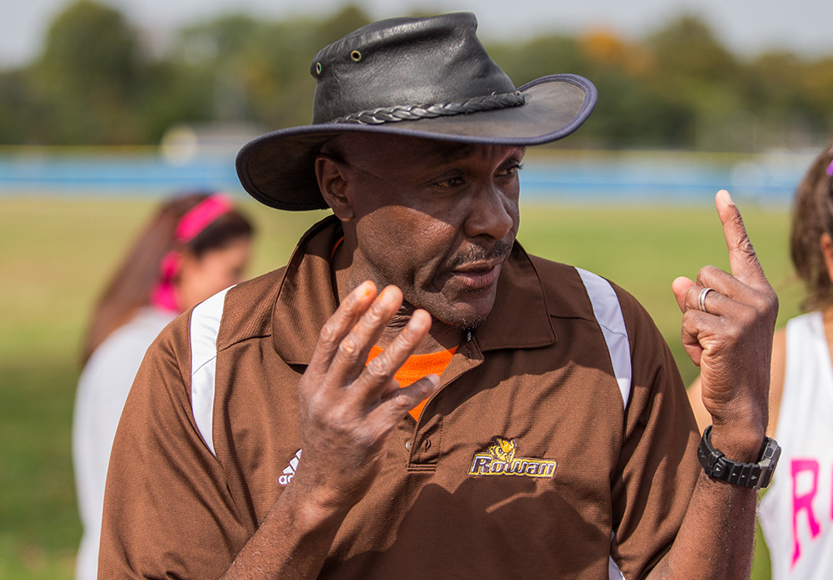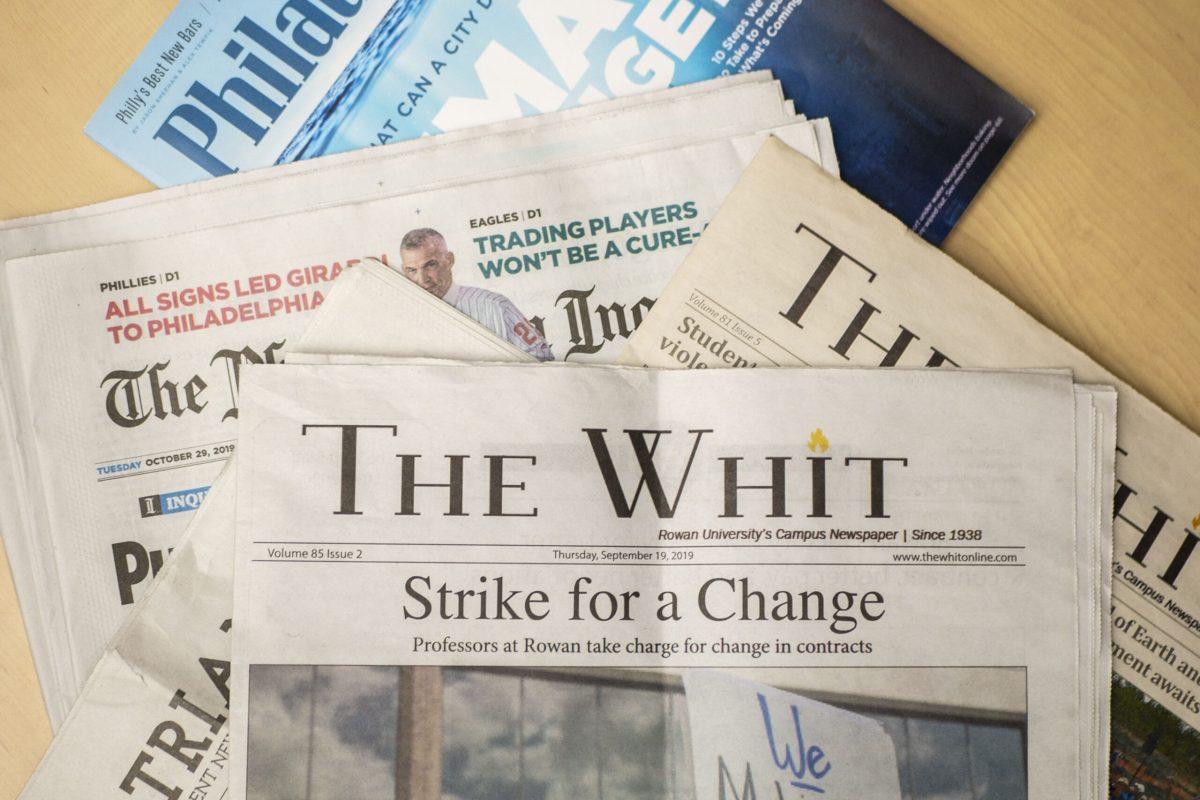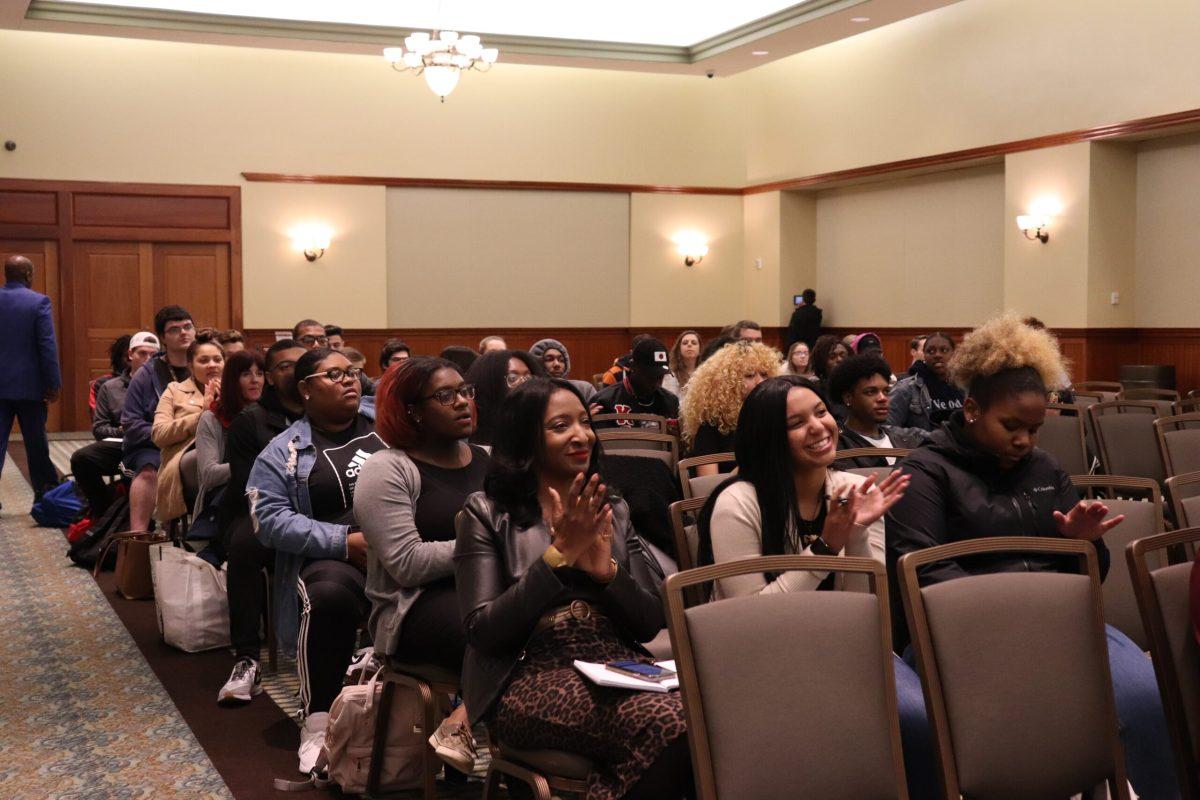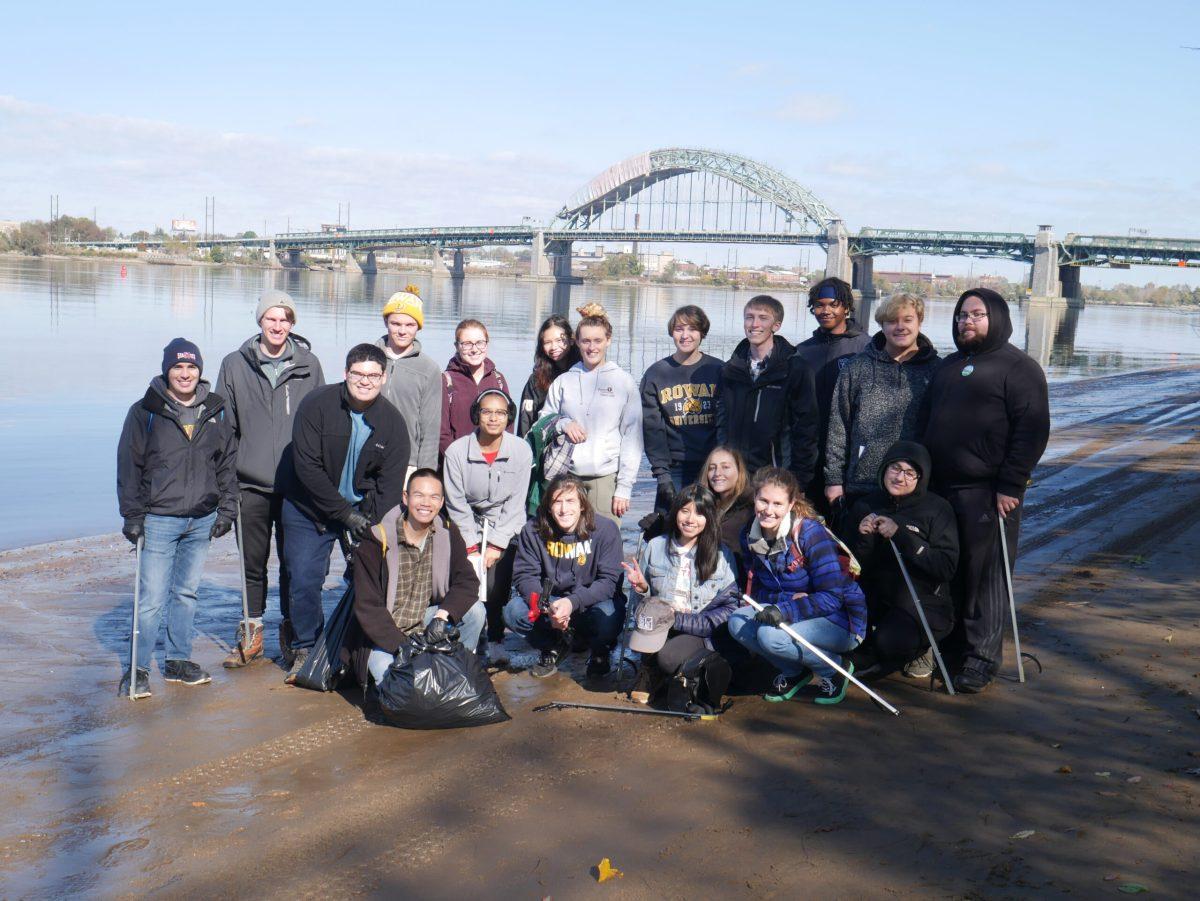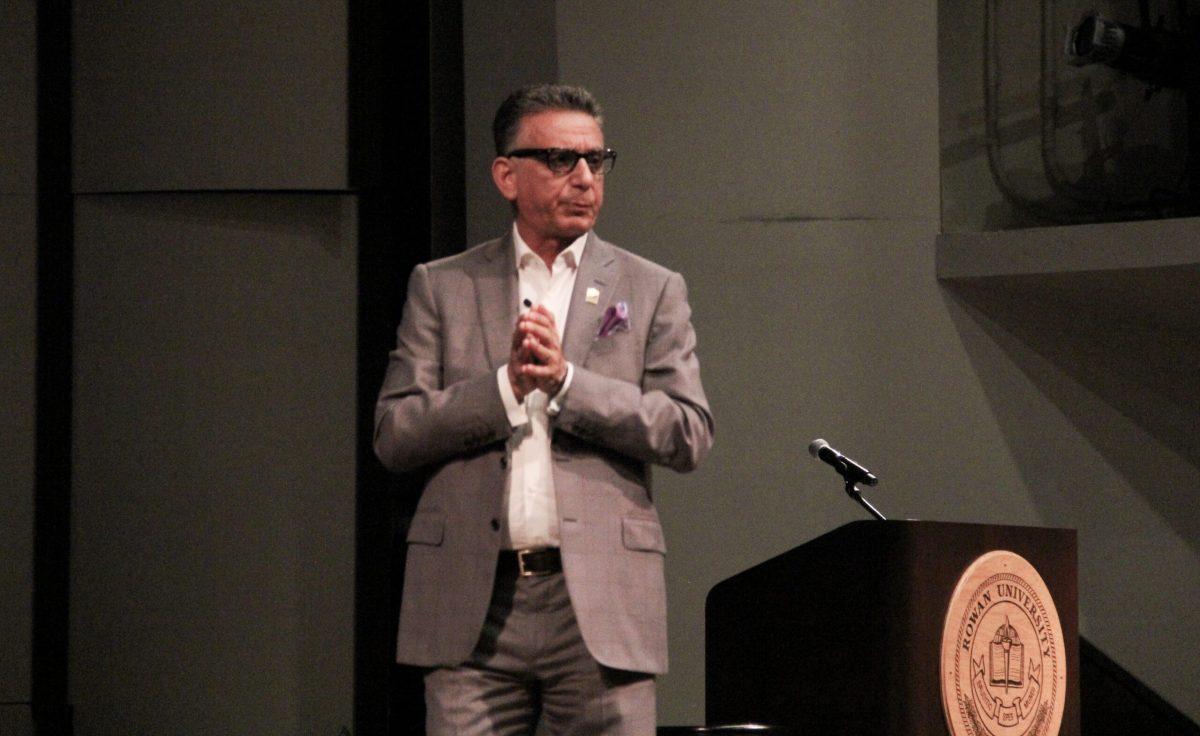One thousand two hundred seventeen words fill the profile of Rowan women’s track and field coach Derick “Ringo” Adamson on the university athletics website, and for good reason.
The man has more accolades than anyone could possibly imagine. A 2004 NCAA Division III Track and Field Hall of Fame induction here, an Olympic participant for Jamaica in 1984 and ’88 there—shouldn’t this be left to an ESPN “30 for 30” feature?
All that anxiety that came with talking to a person of such clout was immediately thrown out the window when he emerged in the hallway of Esby Gymnasium.
Ringo, as he’s lovingly called, wore skinny jeans, a Rowan Track and Field shirt and his hat pulled backwards. As our conversation began, the hat on his head turned around and the coach’s voice transformed into a business-like tone.
Adamson is a book in and of himself. Stories flood his career both on and off the track. All of what you can read online about him is just the sprinkles on top of the cake.
“I never went out with a purpose to go say ‘oh, I’m going to be a runner,'” Adamson said. “It seems like a lot of things that have happened to me in life. I don’t know if you can call it a mistake or a way of destiny, but you have to realize where I was born.”
As a kid growing up in Jamaica, not a single person in Adamson’s family owned any type of vehicle. People either rode horses bareback or donkey, or walked. Where he grew up is one of the poorest places in the country when it comes to income, but when it comes to fruits and other forms of food, Adamson had the sweetest of fortunes.

His mother was given a job to work with a family in Verona, New Jersey, when he was eight. When she set out to create a life for the both of them, Adamson stayed with his grandparents. He then came to the United States when he was 14, joining his mother with the family in Verona.
“When I first came [to Verona], this will blow your mind, now. I never, ever set foot in any school system in my life until the age of 15,” Adamson said. “My dad was part of the original people on the island in Jamaica. I grew up around my grandparents and I could tell you how to handle nature, herd goats, chop sugarcane … but never was schooled.”
Upon moving to Montclair for high school, Adamson was introduced to gym class. His teacher would have the kids run a half mile toward the school from the track while he was on a bike.
“If he got there before us we’d do a whole bunch of extra stuff,” Adamson said. “They’d use extra activity as a form of punishment even though we should be doing these things anyway. So depending on the game we’d play, if we were last, I’d run like crazy. If we played basketball, I was the last kid to get picked. I was horrible, still am horrible. I hate the damn game. But, when I got there, we were playing soccer and of course everyone wanted me.”
“I never wanted to ask what cross country was,” he said. “I’m thinking to myself ‘you can’t run from town to town and you’re not [literally] running cross country, but I wanted to know.’”
His teacher then recommended cross country to Adamson after seeing his ability in gym class. But it wasn’t so easy. He faced bullying by his classmates as a strong Jamaican accent gave him the nickname of “Jamaican boy.”
“I never wanted to ask what cross country was,” he said. “I’m thinking to myself ‘you can’t run from town to town and you’re not [literally] running cross country, but I wanted to know.’ But, I didn’t want to speak because I’d get made fun of.”
Finally, one of his friends urged him to try out for the team after a soccer game was cancelled.
The run was set for three miles, but due to his lack of knowledge of the customary system, Adamson didn’t know when to stop. So he did so whenever he thought he’d run long enough.
“I remember running up this hill and an arrow going to the left and one to the right, and I’m leading the first race I’m ever in so I stopped,” Adamson said. “I remember saying to my coach, ‘I have no idea where to go, and don’t feel like running any further.’ I borrowed shoes too small for me from my friend because I had none. That day, history was made for me.”
Adamson said that he’d “go through a different door” to hide from his friends that urged him to go to cross country. This was part of how he earned the nickname “Ringo.”
“Every day, man, there would be a four o’clock matinee on channel seven up in North Jersey and they are always a different theme,” he said. “This darn week it was western week and I love western movies. So this one Wednesday, this movie was coming on called ‘Ringo and His Golden Pistol.’ They stopped me to go to practice and I said, ‘no no, I have to go home to watch Ringo and His Golden Pistol.’ The team starts laughing, calling me Ringo. The name stuck, and I ended up even naming my son Ringo, and that’s his real name.”
When asked what clicked in his mind when he decided to commit to running, Adamson said that his friend Jeff had a plan to get other people out to run with them and make a great team together.
They were the first people in his new home of America to ever embrace him and accept his differences. Ringo went on to explain how the better he became, the more he was “transformed” and was fitting in with the other guys.
“What I did was, I’d go home from school sometimes before my mom got home and go into the bathroom and turn on the cold water and look in the mirror,” Adamson said. “I’d put the cold water on so no one would hear me. I’d look in the mirror and talk to myself and try to change the accent. If I could do that, I could blend in and nobody would notice me as much.”
It wasn’t until Adamson got older that he realized he really didn’t have to change who he was for the benefit of other people liking him. Now, he uses this as a tool for his recruiting. He embraces what’s different.
“Be who you are and be something special,” Adamson said.
It was what made him unique.

At Rowan, you’ll hear many stories about Adamson, from many different people that have either been coached by him or have written about him.
Adamson uses an analogy with help from his hometown in Jamaica to tell people what kind of person he aims to be in life.
He said that there used to be a bunch of rivers on the island, with rocks and mountains where water comes down and into the river. When you climb further up, there would be lizards that would attach themselves to the rock to feed off the plankton the rocks held. The water coming down during harsh, rainy conditions would turn those mountains in waterfalls.
“If they hang on to this rock, their food source would be washed away,” Adamson said. “Maybe they are thinking if they go down the river they will perish, but if they stay there on that rock they will perish also. Here’s what they didn’t know: if you let go of the rock and head down the river, there’s an abundance of food waiting for them.
“I always grew up and seemed like I was that guy. I’m always heading down the river, you see what I’m saying? I’m not going to sit there, I’m going to do this and that and teach. I’m going to influence people in a good way. I think I’ve achieved those things by going down the river.”
Ringo introduces people to more logical and humane thinking. His biggest fear? Not making those around him better. To him, living without making those around you stronger people “isn’t living at all.”
“I just try to live a simple life. I don’t place much emphasis on material things and richness,” he said. “We all are going to leave this world, so when I leave, I’m not going to worry about the richness I had. My biggest richness I want to leave is my influence. If I could share things with you that can make your life a little bit stronger, more appreciative, then to me that’s worth much more than gold. You have something that you can go and offer to someone else.”
Prior to his South Jersey Track and Field Hall of Fame induction on March 26, Ringo had said that he hadn’t written a speech and was not planning to for the occasion.
“I’ve never written a speech. I tend to speak from here,” he said, pointing to his heart.
For comments/questions about this story, email [email protected] or tweet @TheWhitOnline.

























































































































































!["Working with [Dr. Lynch] is always a learning experience for me. She is a treasure,” said Thomas. - Staff Writer / Kacie Scibilia](https://thewhitonline.com/wp-content/uploads/2025/04/choir-1-1200x694.jpg)









































